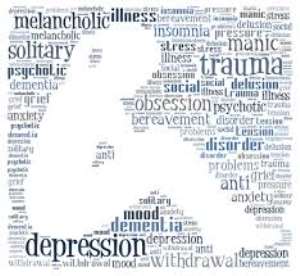
Accra, Aug. 1, GNA - The epidemic of trauma and resultant injury is continuing to exert its unequalled force on the African Continent.
The volume of acutely ill and injured is an ever increasing issue, affecting mostly the youth and economically productive sector of the continent's populations, Mr Kwaku Agyemang Manu, Minister of Health said.
The Minister speaking at a three-day Inaugural Symposium of the African Forum for Research and Education in Health (AFREhealth) in Accra, said that disproportionately affected low-income countries, where three of the five leading causes of death included injury or trauma.
Mr Manu said injury resulted in 5.8 million deaths worldwide every year, thus, 32 per cent more than HIV and malaria, adding, pre-hospital emergency services were poorly developed and compromised the outcome of interventions.
The 2017 Accra Maiden Symposium is expected to bring together 300 health professionals to deliberate on finding solutions to health challenges in Africa and chart a future for AFREhealth.
It is being organised by AFREhealth in collaboration with the Ministry of Health, World Health Organization, National Institutes of Health, Ghana College of Physicians and Surgeons, Health Resources and Service Administration, Consortium of Universities for Global Health, ECOWAS Commission, Kwame Nkrumah University of Science and Technology and ICAP.
AFREhealth is an interdisciplinary health professional grouping that seeks to work with Ministries of Health, Training Institutions and other stakeholders to improve the quality of health care in Africa through research, education and capacity building.
Mr Manu emphasised the need for health services to be made available, affordable and delivered effectively and efficiently by qualified personnel in a timely manner.
'At the heart of this is the need for adequate numbers of appropriately trained personnel. We cannot depend on the charity of the external missions to address our health needs.
'I am aware of the role being played by middle level practitioners in some African countries for the delivery of surgical services,' Mr Manu said and called for scientific evidence for the efficacy of such initiatives before adopting it throughout the continent.
The Minister noted that the continent's health system faced a number of challenges including poor infrastructure, un-integrated information systems and absence of comprehensive emergency services and attributed that to weak governance structures and inadequate financing of health care services.
He, therefore, suggested strong and effective leadership and governance at all levels of the health system.
Mr Manu commended AFREhealth for the initiative to reach out to more than 120 medical and nursing schools on the continent that did not benefit from the Medical Education Partnership Initiative and Nursing Education Partnership Initiative awards and share the gains.
He pledged the Ministry's unflinching support to facilitate AFREhealth's goals.
Professor Peter Donkor, the Chairperson of AFREhealth, said the increasing incidence of non-communicable diseases such as diabetes, cancers and cardiovascular disease, with malaria accounting for significant morbidity and mortality, while infant and maternal mortality rates remain unacceptably high.
He said sadly the workforce required to tackle these health challenges was in short supply and health training institutions lacked the capacity to meet the demand for places, and the few available ones were under-resourced with poor infrastructure and limited facility.
Prof. Donkor said AFREhealth came about through the joint leadership of the Medical Education Partnership Initiative (MEPI) and the Nursing Education Partnership Initiative (NEPI) in 2016, after a symposium in Nairobi, Kenya, with funding from the US government, to support professional training and research, strengthen their quality and capacity, as well as the overall educational systems of selected institutions.
He said key goals of the MEPI and NEPI, were to increase the numbers and improve the quality of medical and nursing graduates, promote their retention where they were most needed, improve the capacity to undertake regionally relevant research, build communities of patience within Africa and globally and ensure sustainability.
He said AFREhealth intended to expand and share the gains made so far with more schools and provide the needed leadership for training health professions education, research and service delivery in Africa.
Prof. Jacob Plange-Rhule, the Rector of the Ghana College of Physicians and Surgeons, admitted the fact that there was the strong need for an African medical leadership drive, for continuous education and research, to solve the numerous challenges of the continent.
The College, he said, had succeeded in preventing the massive brain-drain of medical and other health professionals and could boast of 90 per cent retention of doctors, and would continue to provide the needed training for these professionals to be able to play leading roles in changing the health outcomes.
GNA
By Patience Gbeze/Mrs Addo, GNA




 We’ll no longer tolerate your empty, unwarranted attacks – TUC blasts Prof Adei
We’ll no longer tolerate your empty, unwarranted attacks – TUC blasts Prof Adei
 Bawumia donates GHc200,000 to support Madina fire victims
Bawumia donates GHc200,000 to support Madina fire victims
 IMF to disburse US$360million third tranche to Ghana without creditors MoU
IMF to disburse US$360million third tranche to Ghana without creditors MoU
 Truck owner share insights into train collision incident
Truck owner share insights into train collision incident
 Paramount chief of Bassare Traditional Area passes on
Paramount chief of Bassare Traditional Area passes on
 Two teachers in court over alleged illegal possession of BECE papers
Two teachers in court over alleged illegal possession of BECE papers
 Sunyani: Victim allegedly shot by traditional warriors appeals for justice
Sunyani: Victim allegedly shot by traditional warriors appeals for justice
 Mahama vows to scrap teacher licensure exams, review Free SHS policy
Mahama vows to scrap teacher licensure exams, review Free SHS policy
 Government will replace burnt Madina shops with a new three-story, 120-store fac...
Government will replace burnt Madina shops with a new three-story, 120-store fac...
